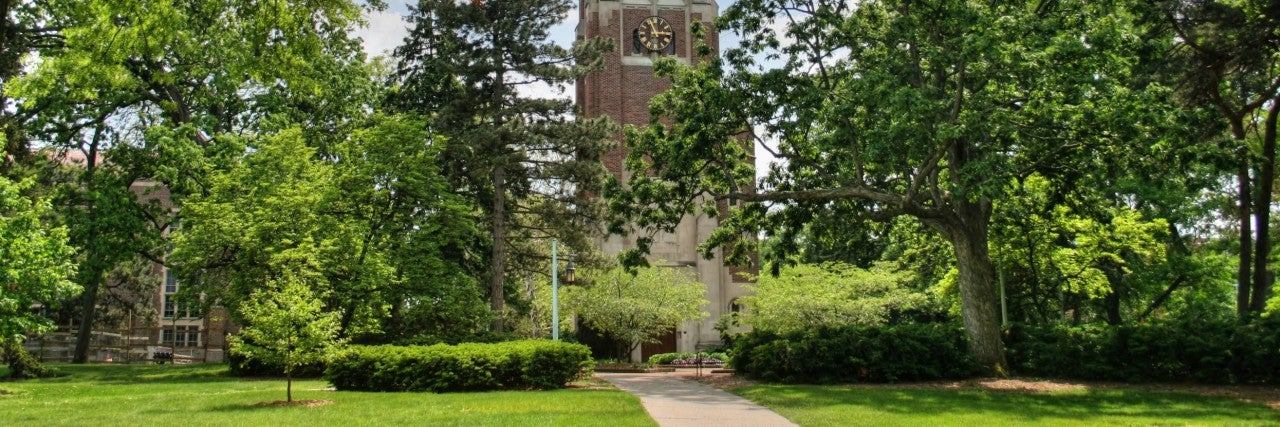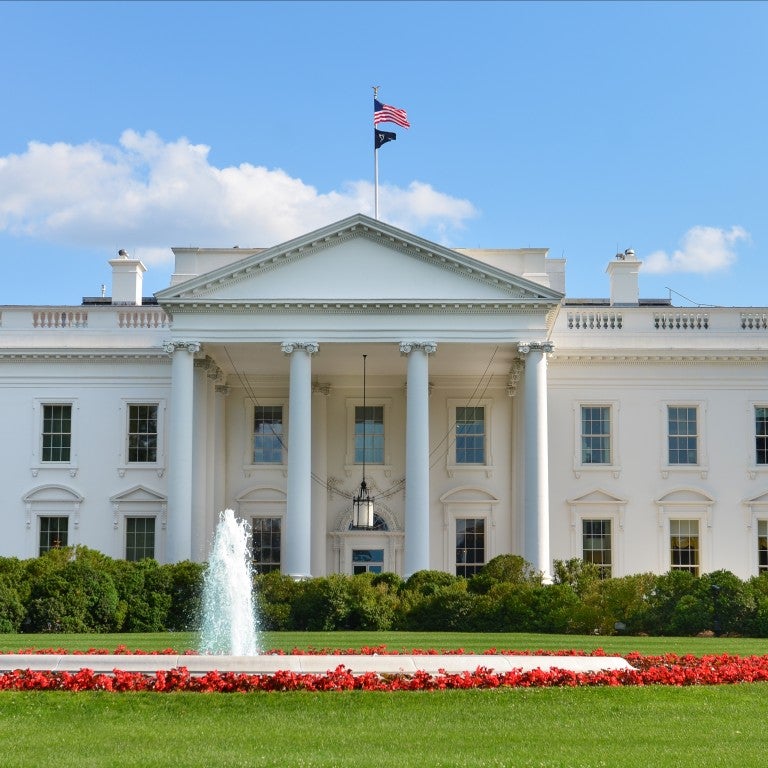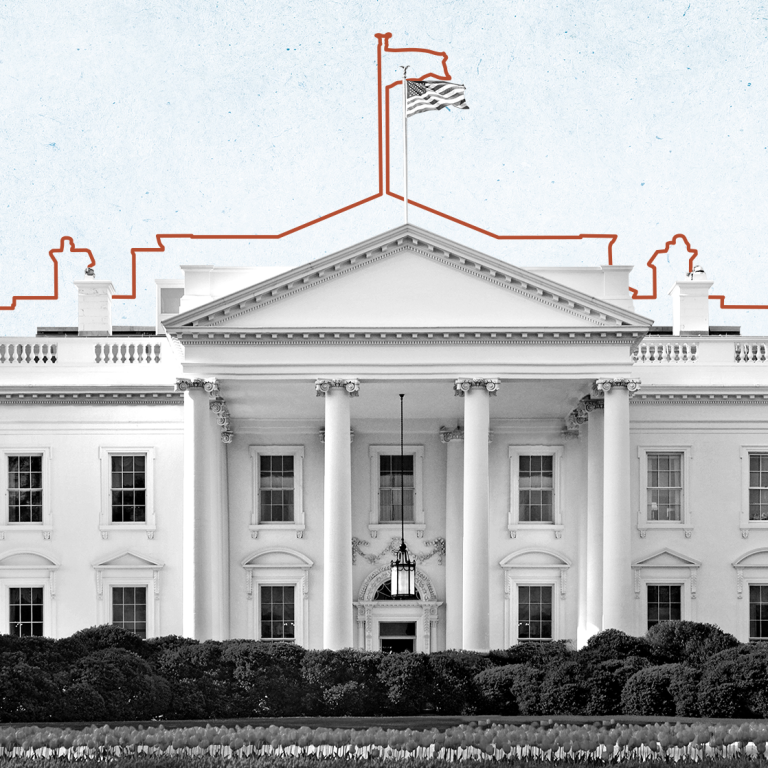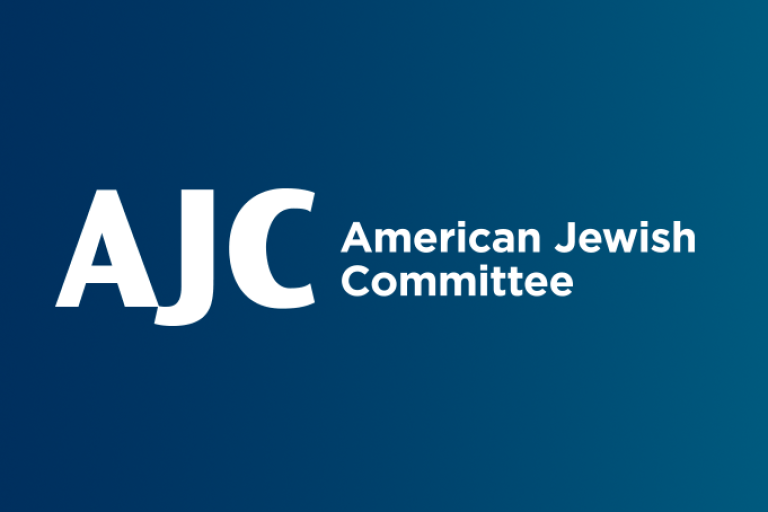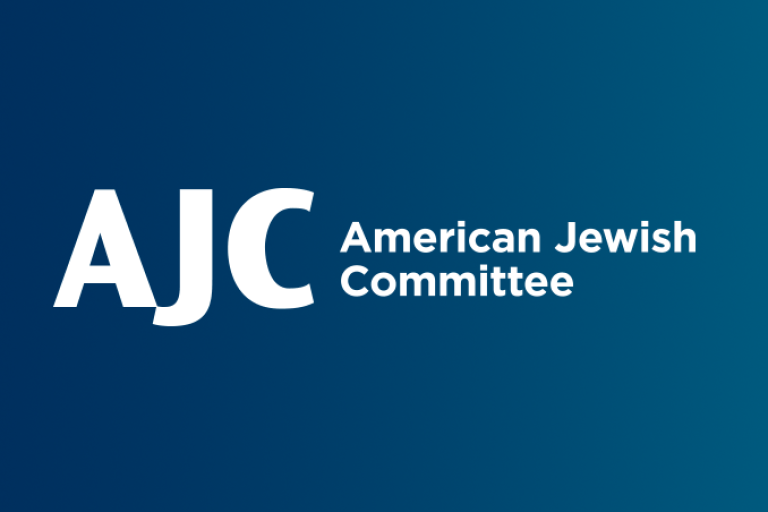August 10, 2023
In May, the White House released its U.S. National Strategy to Counter Antisemitism. As students return to campus, hear from two student leaders who are working to share and implement the strategy’s recommendations at their colleges and beyond: Sabrina Soffer, a rising junior at George Washington University and the head of the school’s Presidential Task Force to Combat Antisemitism, and Abe Baker-Butler, a rising junior at Yale University and the president of the AJC Campus Global Board.
*The views and opinions expressed by guests do not necessarily reflect the views or position of AJC.
Episode Lineup:
- (0:40) Abe Baker-Butler and Sabrina Soffer
Show Notes:
Test Your Knowledge:
- Take AJC's Back to School quiz, covering everything from celebrating Jewish life on campus and addressing antisemitism to how AJC empowers students to advocate for the Jewish people and Israel. Start now!
Read:
Learn:
Listen:
Follow People of the Pod on your favorite podcast app, and learn more at AJC.org/PeopleofthePod
You can reach us at: peopleofthepod@ajc.org
If you’ve enjoyed this episode, please be sure to tell your friends, tag us on social media with #PeopleofthePod, and hop onto Apple Podcasts to rate us and write a review, to help more listeners find us.
Transcript of Interview with Abe Baker-Butler and Sabrina Soffer:
Manya Brachear Pashman:
At the end of May, weeks after most college students headed home, abroad, or to summer internships, the White House released its US National Strategy for Countering Antisemitism. But given the timing, it's unclear how many students know it exists. With me are two student leaders who not only know, they've shared it with other students with the intention of helping to implement its recommendations for college campuses, when in a few weeks they go back to school.
Sabrina Soffer, a rising junior at George Washington University is the Commissioner of the Presidential Task Force to Combat Antisemitism at GW, and Abe Baker-Butler, a rising junior at Yale University is the president of the AJC Campus Global Board. Abe, Sabrina, welcome to People of the Pod.
Abe Baker-Butler:
Thank you for having us, Manya.
Manya Brachear Pashman:
So I will ask you both, when did you hear about the US national strategy?
Abe Baker-Butler:
So I heard about the national strategy when it was in the headlines initially. But with school ending and finals, I didn't have the time to actually sit down and read it in full until we got to AJC Global Forum. And what really stuck with me was how there are real action items in there for students, and not only Jewish students, but all students to take action to combat antisemitism. And I was very excited that as the Campus Global Board, we had the opportunity to spend some real quality time brainstorming how we could play a meaningful role in implementing this National Strategy to Combat Antisemitism.
Sabrina Soffer:
So yeah, that's really interesting, I took very similar tidbits away from the strategy. But the first time that I heard about it was actually the same day that I was giving a talk to a group of women in San Diego, which is my hometown, in California. And it gave a lot of hope to the women who were listening to what I was saying, especially because the talk was about my experience on campus, which I think I'll get into a little bit later. But similar to Abe, the time I read it on the plane, actually on the way to Israel. So I had quite a bit of time to do that. And the thing that really stuck with me was exactly what Abe said, how all students, not just Jewish students, can take action and also the interfaith component. I think that having other students stand up for the Jewish community is essential and spreading awareness that way can really help in the fight to combat antisemitism.
Manya Brachear Pashman:
So yes, Sabrina, I do want to talk to you a little bit more about the Taskforce. But first, Abe, can you tell us about the AJC Campus Global Board? It was formed last year, but who makes up its membership? And why? Why are they on this board?
Abe Baker-Butler:
We're a group of 30 students, I believe, there are 20 of us from the United States, 10 of us from the rest of the world. And when I say the rest of the world, truly the whole rest of the world, Australia, to South Africa, to Europe, you name it. And our mission that we're working to pursue, is to support AJC's work on campus, and also to really ensure that AJC's work is informed from a student leader and young person's perspective. I think it's a real testament to AJC that they are taking this tangible step to prioritize us as young people and to say, you know, we want to hear you, and we want your perspectives to inform our advocacy.
Manya Brachear Pashman:
So what schools do students hail from? Are they all East Coast schools? Or is there geographic diversity?
Abe Baker-Butler:
Certainly not all East Coast schools, we have people from all over ranging from the University of Florida University of Southern California, University of Tennessee, Northwestern, and that's just in the United States. Our goal is really to ensure that we are incorporating a broad array of perspectives from across our country, from across also all parts of the Jewish community. We care deeply on the Campus Global Board about ensuring that we're embracing a pluralistic Judaism, that we have people from all denominations, all backgrounds, and we believe that by doing that we can best inform AJC's work.
Manya Brachear Pashman:
And what have you done so far?
Abe Baker-Butler:
So in the past year, we've really been building our structure and integrating ourselves into the AJC institution. A few highlights that I can think of from the past year that have been particularly meaningful to me, are well I guess this is one of the biggest ones in my mind during the development and prior to the announcement of the National Strategy to Combat Antisemitism, Holly Huffnagle, AJC's U.S. Director for Combating Antisemitism, her and other AJC content experts and staff took the time to meet with a contingent of our campus global board members to hear their thoughts in a listening session of sorts. And then what Holly and those staff members did is they took those thoughts and used them as they were giving feedback to the White House, as it developed the National Strategy. To me that's extremely meaningful.
Some other events we did is we had an event with Ted at University of Pennsylvania, which received really diverse audience in terms of Jewish denominations and observance, which I was very happy about.
We also held an event with Richie Torres, at Harvard, which was also much needed, given the situation on campus there. And beyond those sorts of headline events, we've also been doing more-- we’ve started a mentorship program between our campus full board and ACCESS. And there's a lot more in the pipeline, too, that I can also talk about.
Manya Brachear Pashman:
Can you talk a little bit more about what was going on at Harvard? Is the campus global board, is the primary responsibility to respond to situations?
Abe Baker-Butler:
Yes, so the reason I made that remark is because I think there's often a perception that you can't be both progressive and Zionist, and I think Ritchie Torres, who was our speaker there, really cuts that misconception straight through. But in terms of us responding to what's going on on campus, another really interesting part of our work that I'm proud of is our antisemitic incident response. Whenever there is an antisemitic incident on a campus, we the leadership of the campus global board, try and reach out to the Jewish leaders on that campus, whether it be the presidents of Hillel, or the head of the Chabad board. And we come saying, Hey, we're not here looking to get any kind of headlines, or press coverage, or to meet with your university administrators. You tell us what you need. And we're here as a group of 30 committed individuals to provide it to you.
Manya Brachear Pashman:
Sabrina, tell us about GW’s task force to combat antisemitism and who makes up that group?
Sabrina Soffer:
Yeah, so GW's task force came about after the Lara Sheehi incident that happened in December. So basically, there was a professor who was teaching a mandatory diversity class at the grad school level. Everybody had to introduce where they were coming from. And there was a group of students from Tel Aviv. And the professor responded, it's not your fault you were born in Israel. And to make a long story short, that class became increasingly about imperialism and settler colonialism and more anti-Israel over time, and the students became more and more uncomfortable, and even after they reported it to the dean, there was no accountability. And then there was a title six complaint. And after that, there was an investigation conducted by the University, I guess, the university hired a law firm. And they found that there was not only no antisemitism, but no discrimination, because it fell within the lines of free speech, what was going on in the classroom, which I don't necessarily agree with, I think that it created a really hostile environment. Because the students did report that they couldn't sleep well, they couldn't eat because they had to turn in assignments to that professor who they couldn't trust because obviously, she disrespected them because of their identity.
So something I'm trying to do with the taskforce is trying to create trust between all members of the GW community, whether they agree or disagree, and no matter their identity groups, but I'll put that aside for now. So after that incident happened, there was a student in the student government, I think he's the former legislator General. And he was friends with the president of Chabad. And I'm the vice president. So they were speaking about it. And I guess the president, who's a good friend of mine, said, Oh, I have a friend who's very much involved in the Jewish world. And she would definitely like to take on an initiative like this one, and create a taskforce to deal with these issues on campus, because we've had quite a few of them that are either similar or radically different than the Lara Sheehi incident. So you know, I took the task upon myself I, they gave me some parameters of what to do, like it had to be 10 students, which I've now expanded to 15, because I couldn't reject people who seriously sounded amazing in their interviews, and then it had to be tied to the student government in some sort. So from there, I had to pass it through three different committees on the task force, and I really wanted it to be an all encompassing group. For example, I didn't want it all Jews, like the White House National Strategy says.
And I think at the back of my mind, my mom raised me with this principle of like, you can't solve a problem without making people who are a part of the problem, a part of the solution. So I said, You know what, let's go for it, Yallah, and it'll be better this way. And we'll figure out these issues together. So then it came about, it was voted on unanimously. And then we've kind of started doing some work during the summer, we started collecting data. I've gotten the whole team organized, and I'm really, really pleased.
Manya Brachear Pashman:
You know, I'm sure there are Jewish students who are listening, who are heading to campus as freshmen this year, perhaps their parents or their grandparents are listening. And Sabrina, I'm curious, what should they expect? And how can they prepare to be a Jewish student on an American college campus?
Sabrina Soffer:
So I think that every campus is different. And I want to preface this by saying that no, the campuses themselves, besides a few, like, you can't label the campus as an antisemitic University, I think that's really important to note. For me, from what I've seen in conversations with administrators, with faculty and other students, is that there's a problem of systemic ignorance that breeds antisemitism, not so much a problem of systemic antisemitism. Because really, people don't have that, the majority of people don't have that much hate in their heart, you know, to like, go out and say tropes and demonize, you know, another, another person's identity for no reason.
I think it really comes from people trying to advocate for something else, but they don't know how it makes other people feel, or they just don't care. And I think we have to do a better job of explaining how we feel. So that was just a little bit of a preface, but the backstory is that I came into college not having any idea what this would be like. I tried to look for a campus with a great Jewish community, which GW absolutely has. Not all campuses have it. But I'm lucky, I actually don't believe that we do have a Chabad, Hillel, Meor, GW for Israel. So groups that I really identify with, and I thought that I would have no problem. However, in some of the classes that I was taking, I would openly share my ties to Israel, where my family was from, where I got my principles and my ethics. And over time, I came to realize that my ideas were being tarnished, they were being called racist and xenophobic.
This was just a quick story. We were trying to talk about Holocaust education and slavery education, and one girl told me, Oh, the Holocaust is a lot more sensitized than slavery in school, because Jews are white. And that's like, I took that very, you know, did not sit well with me. But it was a problem of ignorance. I had a conversation with the girl afterward. And you know, we reconcile the differences, but like, I think that happens a lot on campus where there's so much ignorance, that it just comes out in ways that they shouldn't.
So, from then on, I really took it upon myself to become an educator, no matter what people would think of me. I would always try to spread my truth and do it in a loving way.
So I would just encourage all Jewish students before they get to campus to find their community because this whole time that I was experiencing this difficulty, I was really leaning on my Chabad friends, my Hillel friends, and of course, my family back home. Always talk to your parents. I think that's a really important point. And find the people who are going to support you no matter what. So that's just my my big piece of advice as well as get yourself educated. Know your history. Know your facts, know your identity, and never stop being who you are.
Manya Brachear Pashman:
Abe, what about you? What advice do you have for incoming freshmen?
Abe Baker-Butler:
Yeah, well, I think Sabrina really hit the nail on the head here by talking about ignorance. The stories I've heard from my friends and what I've experienced on campus, I've seen that a lot of the antisemitism we see is really driven by ignorance. I've heard multiple times on my campus. ideas such as the Jews are white and privileged. Why do the Jews have so many resources in the form of their lovely Hillel building? Look how rich the Jews are-they have security guards. These kinds of ideas, these kinds of comments. I think they're not coming from. Yeah, I don't think there's such a thing as informed hatred, right. I think that's an oxymoron. But they're coming out of ignorance. And I think because these sorts of antisemitic sentiments are coming out of ignorance. It makes the work that people like Sabrina and I, like Sabrina's taskforce and our campus global board, I think it makes the work that we're doing, ever more important, extremely important.
Abe Baker-Butler:
In terms of my advice for Jewish students coming to campus, I would say, you should keep in mind that while you can have an extremely meaningful impact by teaching those who may be ignorant about antisemitism, you also should remember that it is not only your responsibility to fight antisemitism, it is the entire community's responsibility to fight antisemitism. That includes it, should and must include allies. And then the other advice I would give is exactly what Sabrina said, you should know that as a Jewish student, there is a community behind you both on your campus, whether it's Hillel or Chabad, or anything else. And also, nationally, there are students like Sabrina and I, who are here to support you. There are organizations like Jewish on Campus, for example, of students that have ambassador's programs on campus. So you should never feel alone as a Jewish student on campus. Because there's so many people out there who care about you and support you. And you have the facts behind you.
Sabrina Soffer:
I also just something that's really important for students to know is like know your rights on campus, both in the campus realm and the legal realm. Because what happened with the Lara Sheehi incident, those students, they knew how to report the incident. But there was no accountability. So it's like, where do I go from there? I've had students, I've had friends who've given up after they've had incidents, and they didn't know to go to groups, like AJC or Hillel International, maybe to help them out. So I think that knowing your rights before you get to campus is imperative.
Manya Brachear Pashman:
You know, I was going to add, thank you so much, Sabrina, for that. I was also going to add to what Abe said, you know, I went to a very small school. For undergraduate. I was one of two Jews on campus that I know of. There might have been more. So there was no Hillel. It was a very small, tiny Jewish community. But like you said, there are organizations like AJC, there are national organizations. Now there's a national action plan that applies to every school. Not just these larger schools that have Hillels or Chabads on campus. So we talked about engaging different points of view, and different perspectives. These are all young people, your age, still learning. I also think it's very important to build and find allies on campus. I think that right there is a potential for education. And Abe, I am curious what kind of thought the campus global board has given to engaging different points of view and finding allies?
Abe Baker-Butler:
So we care deeply about finding allies. One thing I do want to highlight is the AJC curriculum that we've been developing with Dr. Sara Coodin that we look to use on campuses. And in terms of finding allies. That is key if it's central to our work on the campus global board. Some ideas that we have that we're working on include collaboration, brotherhood and sisterhood events, with Black and Jewish fraternities and sororities, reading groups between black and Jewish groups on campus to understand each other's shared perspectives. Joint interfaith seders and events between Muslim and Jewish groups on campuses. We really have a responsibility to create shared communities of goodwill, who can be our allies on campus, because in addition to having the national strategy and having national organizations like AJC on campuses, like the one you attended Manya, having allies like that is perhaps the most important because they can be that community that supports you.
And the other thing that I wanted to add to what we were discussing before, in terms of advice for Jewish students that I neglected to say was, you should always be proud of your Jewish identity. Always, always, always. You're the heir to an extremely rich intellectual and cultural tradition. And anyone who tries to make you feel ashamed of that or to slander that is wrong, and you should not heed what they say.
Manya Brachear Pashman:
I am curious if you could share how you have celebrated, enjoyed being Jewish on campus?
Sabrina Soffer:
This past April it was Yom Ha'atzmaut and we had Israel fest. It's a GW for Israel organized, we put Israeli flags in Cogan Plaza, the main plaza, we had loud music, falafel, shawarma, everything, and we were just dancing. And it was just the most amazing experiences not only feel like, for me, a lot of my Jewish identity comes from, like Zionism and my Israeli background. So just being able to celebrate Yom Ha’atzmaut with a bunch of my Jewish friends who also support Israel. And it was just amazing. And also like a lot of the music that I grew up with, and that I'm familiar with, that was very fun to like, have in public on campus, and also having non Jews join us in that celebration. And this was all while SJP and JVP, were sitting right in front of us for literally two hours with posters with very hostile messages about Israel. And we didn't pay any attention, we kept dancing, and they just it's like, you know, we will do our thing, we'll be proud, we block out the noise, block out the hate. So that felt pretty great.
And then another experience I had was on Pesach, my parents come and visit me a lot. I brought them to Chabad for Pesach, and it was just like they fit in so nicely with all my friends, all the students and the whole GW community. Chabad was really the organization that ushered me in at the beginning, they really made me feel like home away from home, and having my parents who like literally made my home amazing, very Jewish. Like they brought me up in a Jewish home, having them in my new kind of home in college just was very rewarding. So those are two experiences.
Manya Brachear Pashman:
Both sound beautiful, both sound really, really lovely. And I just want to clarify for listeners, JVP stands for Jewish Voice for Peace, and SJP is Students for Justice in Palestine, which are two groups on college campuses that have engaged in a lot of anti-Israel rhetoric.
Abe, I want to turn back to you for one last question. And that is, I asked you what the Campus Global Board has done and it's one year of existence, but what will it do in the year ahead? What do you envision accomplishing?
Abe Baker-Butler:
Probably the most central part of our plans for this year, I want to highlight is implementing the White House national strategy on combating anti semitism on campus. One idea that we're working on, not finalized yet, but that I'm hoping will become a reality is an incubator of sorts, where we'll put out a call for proposals from not only Jewish but non Jewish groups about how to fight antisemitism on campus, in line with the plan. And then our goal is that the campus goal board will sift through the proposals that we receive and figure out how we can best support, financially and otherwise, these organizations on campus in conducting activities that will help implement the plan and stem antisemitism. Some other ideas we have are, we want to bring diplomats from Abraham Accords countries to campuses to help stem the ignorance that I was talking about. And then also, we want to ensure, the point I was making earlier about integrating young people, and really walking to talk with young people as part of AJC's advocacy. We want to ensure that young people, members of the campus cohort and others aren't as many AJC advocacy meetings and settings as possible, because we believe, and AJC believes as well, that when our voices are there, it provides for an even more persuasive advocacy, and an even more full representation of the interests of the Jewish community.
Manya Brachear Pashman:
Can you give examples of where that advocacy takes place? Where would these young people go?
Abe Baker-Butler:
Certainly. So we're planning to do it at all levels. One example would be Diplomatic Marathon alongside the UN General Assembly, meetings with diplomats there but also at the local level with legislators and others, at the regional office level. There are a lot of opportunities for young people to get involved in AJC's work. And we want to ensure that young voices are represented in all of these meetings, whether it be domestic legislators or diplomats or anyone else.
Manya Brachear Pashman:
Sabrina, Abe, thank you so much for joining us and discussing what your plans are for this year. I wish you both a lot of luck and I hope you most of all enjoy your junior years in college.
Sabrina Soffer:
Thank you so much for having us.
Abe Baker-Butler:
Thank you, Manya. Shabbat shalom.
Sabrina Soffer:
Shabbat shalom.
